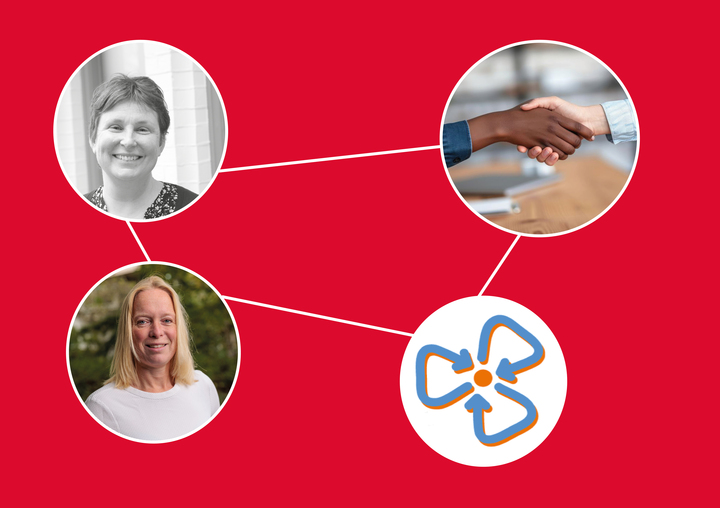Science for Society | The right job for asylum seekers with a residence permit
Scientists work day by day on solutions to a variety of problems. From new drugs to smart farming techniques, our research helps society move forward. But this is not always immediately visible. In the Science for Society series, we use stories about impactful innovations, products and ideas to show that science works!
Text: Jaap Ploeger, Corporate Communicatie UG
Employers are highly eager to hire motivated staff. At the same time, many asylum seekers with a residence permit (known in Dutch as status holders) are eager to work in an environment that recognizes and values their skills. Status holders with a residence permit often have sufficient knowledge and skills, but they do not have the proper diplomas or practical tools to find a suitable permanent job in the Netherlands. In addition, cultural differences and expectations play a major role for both the newcomer with a residence permit and the employer. How can you match these two groups in a sustainable manner?

Nina Hansen, social and cultural psychologist, Liesbet Heyse, organizational sociologist, and their colleagues Sanne Hiemstra and Marjolein Boendermaker developed an evidence-based training and toolbox in collaboration with municipal employment counsellors in the Groningen and North Drenthe labour market region (Werk in Zicht), status holders with a residence permit, and employers. Through the interactive training and the toolbox with information on available support from municipalities, ways of recruiting talent, and clear explanations of cultural differences, municipal employment counsellors in the region are able to match status holders with a residence permit to a suitable employer more successfully.
Status holders with a residence permit overlooked
‘I want people to feel confident in their abilities,’ Nina Hansen begins. ‘And that is particularly important for those who need to put in extra effort to learn the rules and laws of our society. Status holders with a residence permit must do a lot when they arrive here: language tests, integration courses, and young people also have to attend school.’ Less than half of status holders with a residence permit who are able to work have a job, which is often part-time, less well-paid, or temporary. Hansen: ‘Working means participating in society. It gives a sense of purpose in life. It’s a pity if you don’t work because you don’t understand the working culture, as a lot of skilled people are overlooked that way.’
Cultural miscommunication
The specific question from employment counsellors who help status holders with a residence permit find jobs was: how can we match the right person with the right employer? Hansen explains: ‘Our problem analysis showed that cultural miscommunication plays a major role for employment counsellors and employers. First of all, the group of status holders with a residence permit was often seen as a homogeneous group. That approach overlooks the cultural, ethnic, and personal differences between people. Becoming aware of that is essential: who is sitting in front of me?’ Employers also mentioned that they need more information on how to help status holders with a residence permit successfully get started in their organizations.
Heyse and Hansen recognized the need for cultural adaptation during conversations with status holders with a residence permit and employment counsellors. Among other things, this applies to how an employment counsellor approaches a conversation. Heyse: ‘We developed an interactive roleplay for employment counsellors as part of a three-day course that makes them aware of the importance of cultural differences. For example, many status holders with a residence permit come from collectivist cultures that emphasize the group, while our culture is strongly individualistic. This can lead to problems at work if it’s unclear what the expectations are. An employment counsellor, and later also the employer, should take their time to specify and explain mutual expectations.’ Hansen adds: ‘During the training, status holders with a residence permit explain how the work process in the Netherlands feels to them. This way, we’re seeking to remove barriers and help others understand what they’re going through.’
RuimBaan toolbox
The online toolbox offers a wealth of information, manuals, and practical tips both for employment counsellors and status holders with a residence permit. By now, employment counsellors in the 14 municipalities and the UWV in North Drenthe and Groningen are using it. Other municipalities have also expressed their interest. Hansen: ‘In addition to all the information that can already be found, we have also developed a train-the-trainer concept. Employment counsellors who already have extensive experience in helping status holders with a residence permit find work will train new colleagues in the future, so that the information and work methods stay with the municipalities. This is how we create sustainable impact.’
Heyse says that the course participants are enthusiastic: ‘The toolbox and workshops are very much appreciated. We hear from employment counsellors that they take more time for conversations with status holders with a residence permit and try to ask follow-up questions to find a good match with the right employer. A good match can contribute to someone finding employment more quickly, living independently, and developing confidence in their abilities. This way, status holders with a residence permit can find their place in the Dutch society more quickly and make a contribution.’
After 4 July, the training and toolbox will be handed over to the labour market region Werk in Zicht. They will manage the toolbox, with the intention to implement it nationally. Heyse and Hansen will remain involved in the background, for example if there is a need for new content for the training or toolbox. Heyse: ‘In the future, we want to explore whether an adjusted version of this toolbox could also work for other groups with poor job prospects.’
Do you want to know more about Science for Society? Check out the overview page for the previous editions.
More information
More news
-
08 December 2025
Citizen participation essential for a sustainable energy future
-
23 October 2025
Nine UG researchers awarded Vidi grant
